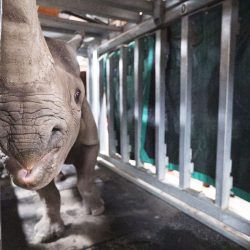The Leo LeBlanc International Scholarship made possible this externship in Swaziland.
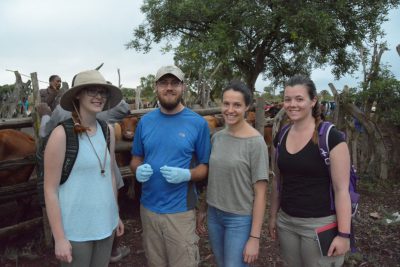
By Chris Kellogg
Receiving the Leo LeBlanc International Scholarship allowed me to pursue an externship in Swaziland. This externship was the perfect fit for me because I am interested in infectious diseases, epidemiology, and disease ecology.
I spent almost four weeks in the Lubombo Region of Swaziland at the Savannah Research Center on the Mbuluzi Game Reserve working on an African tick-bite fever project. The project aims to determine the tick abundance in different habitat types, Rickettsia africae load in ticks, which is the cause of African tick-bite fever, and the relationship between areas of high tick abundance and land use by people
within and around the Reserve. Our objective
was to reduce disease transmission and
prevalence.
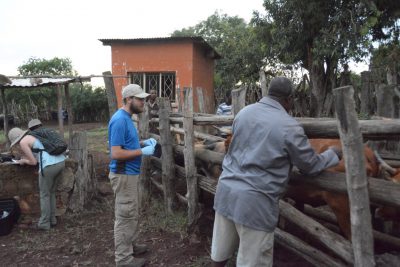
During the externship, I spent my days out in the field focusing on many necessary facets of assessing and learning about disease transmission and prevalence:
- Collecting ticks in various habitat types
- Going to community cattle tick dipping stations where the cattle are dipped in a compound bath to collect ticks on livestock from various regions around the reserve
- Talking with the locals about where their cattle have been and their impressions of tick load on their cattle
- Developing passive tick sampling methods for the species of tick known to carry African tick-bite fever, Amblyomma hebraeum, commonly known as the South African bont tick
- Identifying collected tick species
- Teaching a group of undergraduate students about zoonotic and tick-borne diseases
- Visiting one of the national quarantine facilities for foot–and-mouth disease where stolen cattle that are returned to the country are kept for observation
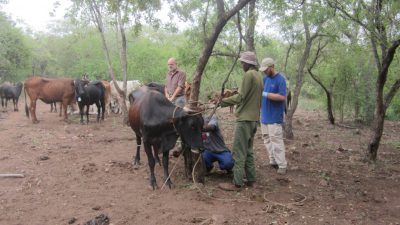
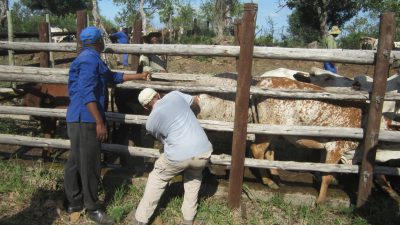
This experience was incredibly rewarding and has deepened my interest in epidemiology, infectious diseases, and disease ecology. Upon graduation, I plan to pursue a PhD in either epidemiology or disease ecology, and this experience was vital in reinforcing my career path. I am very grateful for receiving the Leo LeBlanc International Scholarship and this experience would not have been possible without it.


